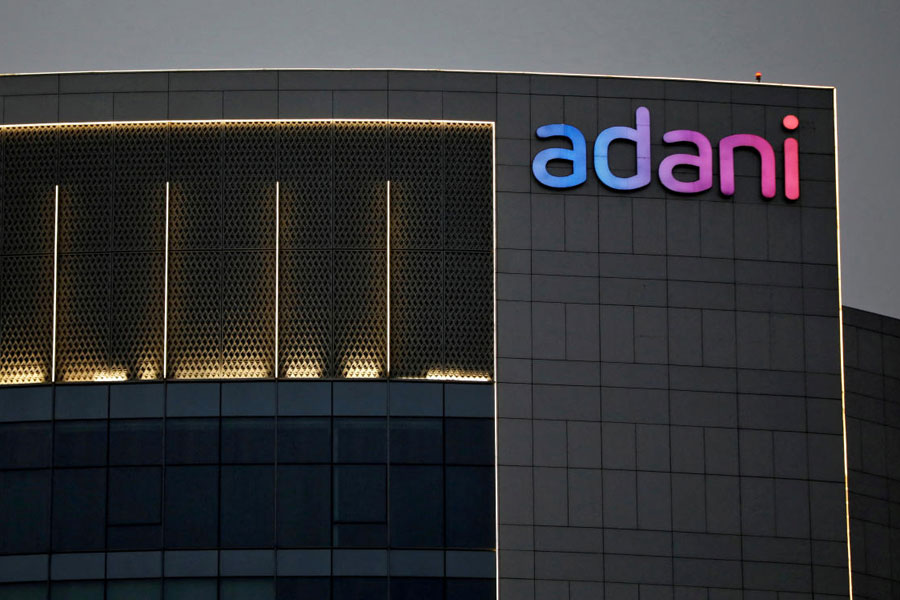Mumbai, Jan. 13 :
Mumbai, Jan. 13:
Who was responsible for the collapse of the stock markets in March last year? That's the nut-cracker question that the Joint Parliamentary Committee (JPC) appointed to investigate last year's stock scam is still wrestling with.
It is fairly clear that it was a combination of factors that knocked the bottom out of the market early last year, which has since been buffeted by the ill-winds of an economy slowdown, a slew of weak corporate results and finally the rumble effects after the twin terrorist strikes of 9/11 and 12/13.
Even as the committee tries to unravel the various strands that entwined to make this sordid saga, one interesting element has been added.
According to the second interim report prepared by Sebi and placed last week before the JPC, it does not transpire that Reliance Petroleum, through Reliance Shares and Stock Brokers Ltd (RSSBL), were the lead financiers in the Automated Lending and Borrowing Mechanism (ALBM) segment of National Stock Exchange (NSE) prior to March 31, 2001. Their peak investment in the segment touched almost Rs 1600 crore by December 2000, before it was yanked down to zero by March 2001, when the markets became very volatile.
ALBM and the Bombay Stock Exchange's (BSE) Borrowing and Lending Securities Scheme (BLESS) are the refined versions of the good old badla. However, the transactions are transparent as they are screen based. For instance, a buyer who buys X shares at Rs 4,000 but does not have the financial backing, will place these shares in the ALBM/BLESS segment. The lender buys the share at a discount, the difference being his spread. A participant who desires to borrow securities has to execute a purchase transaction in the spot book on NSE (referred as an ALBM session). Likewise, any member willing to lend securities shall execute a sale transaction.
The Sebi report brought out the startling facts, but did not find any wrongdoing by the company. However, market experts aver that here is a typical chicken-and-egg situation: which came first, the sucking out of funds, or the plunge in stock values?
The report reveals that the main client of RSSBL was Reliance Petroleum (RPL), which accounted for over 96 per cent of the ALBM transactions through the in-house brokerage of the Reliance group during the period.
On being quizzed by the market regulator, RPL said it had invested funds in the ALBM to generate 'superior fixed income returns' compared with other short term avenues like government securities, liquid schemes of mutual funds, and call money linked products, which gave returns in the region of 7-8 per cent per annum.
'As against this, the return on deployment in the ALBM segment on NSE was much higher, generally in the range of 15-21 per cent,' RPL told the market regulator.
After the ALBM session on February 21, 2001, when the funds deployed by RSSBL amounted to Rs 1,562 crore, the Reliance brokerage withdrew the funds in subsequent settlements.
RPL, asked to give reasons for pulling out the money, said: 'Our peak investment in ALBM was approximately Rs 1,600 crore. We brought it down to nil in March 2001, in view of continuing reduction in interest yields, and as a matter of business prudence.'
'The facts and figures do not bear out that the ALBM or the BLESS facility was misused or manipulated by withdrawing the borrowed securities and using them again, by either selling or pledging them,' Sebi has said in its report.
Giving a blow-by-blow account of RSSBL's activities in the ALBM segment, the market regulator said the funds deployed by the brokerage on various ALBM dates till May 2000 were less than Rs 100 crore. The funds deployed till August 2000 were in the range of Rs 200 crore to Rs 700 crore. Similarly, the amount on various ALBM dates till mid-November 2000 was in the range of Rs 700-900 crore. It peaked at Rs 1600 crore in the end of December 2000 and was reduced to nil by March 2001.
RSSBL made pay-ins worth Rs 4,156 crore between April 2000 and March 2001. In the same period, it received a total pay-out of Rs 3,267.36 crore; it made pay-ins worth Rs 2,280 crore in the period from October 2000 to March 2001, while it received pay-outs worth Rs 2339.8 crore. According to the report, the total ALBM turnover in October 2000 to February 2001 was around Rs 50,000 crore; RSSBL contributed Rs 25,000 crore to the volume.
On further examination, almost Rs 16,280 crore came from ALBM transactions in the so called K-10 scrips, the stocks that were favoured by Big Bull Ketan Parekh. However, Sebi said the amount did not represent actual share sales, but the sale entry generated corresponding to the pure borrowing.
Depository statements were obtained from RPL to ascertain if the shares received by it against pure borrowing in April-September 2000 were actually held by it. Even on BSE, RSSBL was the dominant broker in the BLESS segment. It deployed Rs 486 crore in BLESS in February 2001. By the middle of the month, it had gone down to Rs 333 crore and to nil by end of the month. RSSBL had a 7 per cent share in the segment with funds deployed to the tune of Rs 1605.85. The JPC's views on the new twist to the scam saga are not known.
 Tuesday, 10 February 2026
Tuesday, 10 February 2026









